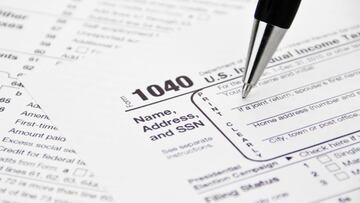Note: If you wish to receive, via e-mail, (1) my weekly newsletter or (2) daily copies of these posts, write to me at [email protected]. Comments may also be sent to this address. I promise not to share your e-mail with anyone. To unsubscribe, write here as well.
Monday
Today being tax day, I’ve got a poem and a literary passage to honor the occasion. The first is a poem in favor of taxes, the second a slam on the rich for doing everything in their power not to pay them. I’m thinking especially of those billionaires who are willing to sacrifice democracy in exchange for wannabe dictator Donald Trump lowering their taxes and gutting regulations.
But first the positive poem, written by “people’s poet” Edgar Guest (1881-1959). Guest was so called because, during his life, he wrote some 11,000 poems that were syndicated in 300 newspapers. And while newspaper poems were often derided by modernist writers in the 1920s and 1930s–they wanted more complex fare–they at least had the virtue of exercising people’s poetry muscles. Once newspapers stopped running poetry, some people stopped reading it altogether.
Anyway, Guest, reminds us why we pay taxes:
Taxes
By Edgar A. Guest
When they become due I don’t like them at all.
Taxes look large be they ever so small
Taxes are debts which I venture to say,
No man or no woman is happy to pay.
I grumble about them, as most of us do.
For it seems that with taxes I never am through.
But when I reflect on the city I love,
With its sewers below and its pavements above,
And its schools and its parks where children may play
I can see what I get for the money I pay.
And I say to myself: “Little joy would we know
If we kept all our money and spent it alone.”
I couldn’t build streets and I couldn’t fight fire
Policemen to guard us I never could hire.
A water department I couldn’t maintain.
Instead of a city we’d still have a plain
Then I look at the bill for the taxes they charge,
And I say to myself: “Well, that isn’t so large.”
I walk through a hospital thronged with the ill
And I find that it shrivels the size of my bill.
As in beauty and splendor my home city grows,
It is easy to see where my tax money goes
And I say to myself: “if we lived hit and miss
And gave up our taxes, we couldn’t do this.”
And now to what Dickens has to say about those wealthy members of society who are doing all in their power to avoid taxes—which is to say, who want other people to pay for the infrastructure, the educated workforce, and the political and economic stability upon which they depend. Dickens unleashes his sarcasm on those factory owners who claim that the government is out to bankrupt them:
The wonder was, [Coketown] was there at all. It had been ruined so often, that it was amazing how it had borne so many shocks. Surely there never was such fragile chinaware as that of which the millers of Coketown were made. Handle them never so lightly, and they fell to pieces with such ease that you might suspect them of having been flawed before. They were ruined, when they were required to send laboring children to school; they were ruined when inspectors were appointed to look into their works; they were ruined, when such inspectors considered it doubtful whether they were quite justified in chopping people up with their machinery; they were utterly undone, when it was hinted that perhaps they need not always make quite so much smoke.
And now business’s threatened retaliation, which sounds like a direct echo of billionaires for Trump:
[One prevalent fiction] took the form of a threat. Whenever a Coketowner felt he was ill-used—that is to say, whenever he was not left entirely alone, and it was proposed to hold him accountable for the consequences of any of his acts—he was sure to come out with the awful menace, that he would “sooner pitch his property into the Atlantic.” This had terrified the Home Secretary within an inch of his life, on several occasions.
So should we conclude from this the companies that stash their cash abroad are unpatriotic? Not at all:
However, the Coketowners were so patriotic after all, that they never had pitched their property into the Atlantic yet, but, on the contrary, had been kind enough to take mighty good care of it. So there it was, in the haze yonder; and it increased and multiplied.
Think how much better we’d all feel about paying taxes if we knew that the wealthiest amongst us were paying their fair share.
